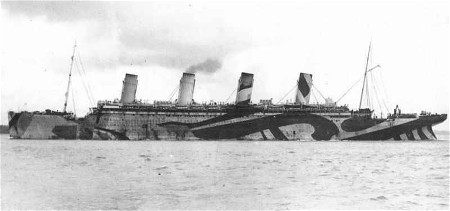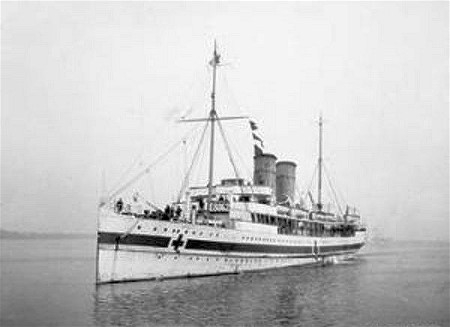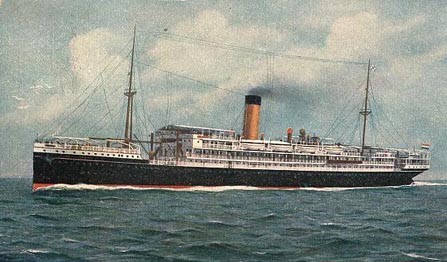|
Jun 5, 1898
|
Born in Eldon Township,
Victoria County, Ontario to John and Janet “Jessie” (nee Snider) McCuaig
|
|
Mar 3, 1916
|
Attested into the 109th Battalion CEF
in Woodville, Ontario
Ø Number 724041
Ø Next of kin given as John McCuaig, father, RMD
(Rural Mail Delivery) No. 1 Lorneville, Ontario
Ø Previous occupation given as Farmer
Ø No previous military experience given
Ø Religion given as Presbyterian
Ø Posted to “C” Company
On attesting, he had not reached the age of 18
and the minimum age for being sent overseas was 19 at the time. Regardless of this, he was accepted.
In the spring of 1916, the 109th
Battalion moved to Camp Borden near Barrie, Ontario for advanced training
In early July 1916, the
battalion moved to the Barriefield Camp, Kingston, Ontario
|
|
Jul 23, 1916
|
Embarked the SS Olympic in
Halifax, Nova Scotia

|
|
Jul 31, 1916
|
Disembarked in Liverpool,
England and proceeded to the Bordon Camp, near Longmoor, Hampshire
|
|
Aug 16, 1916
|
The battalion moved to
Bramshott to continue training
|
|
Oct 5, 1916
|
Transferred to the 21st
Battalion
|
|
Oct 6, 1916
|
Arrived at the CBD (Canadian
Base Depot) in the Rouelles Camp, Havre, France and Taken On Strength of the
21st Battalion
|
|
Oct 7, 1916
|
Admitted to the isolation ward
of the No. 2 General Hospital in Le Treport, France with a diagnosis that
reads Mumps
|
|
Oct 29, 1916
|
Transferred to the No. 4
Convalescent Depot in Havre
|
|
Nov 7, 1916
|
Rejoined the Canadian Base
Depot in the Rouelles Camp, Havre
|
|
Nov 13, 1916
|
After leaving the base depot
he joined the 2nd Canadian Entrenching Battalion in Hersin, France
|
|
Dec 12, 1916
|
After leaving the entrenching
battalion, Private McCuaig finally joined the 21st Battalion in
the front line west of Lens, France and was posted to “D” Company
|
|
Apr 9, 1917
|
During the attack on Vimy
Ridge, France, Private McCuaig was wounded in his hip by shrapnel and
evacuated to a field ambulance for first aid
|
|
Apr 14, 1917
|
Transferred to the No. 2
Australian General Hospital in Wimereux, France
|
|
Apr 20, 1917
|
Transferred to the No1
Convalescent Depot in Boulogne
|
|
Apr 21, 1917
|
Transferred to the No. 3 Large
Rest Camp in Boulogne
|
|
Apr 28, 1917
|
Joined the Canadian Base Depot
in the Rouelles Camp in Havre
|
|
May 14, 1917
|
After leaving the base depot,
Private McCuaig rejoined the 21st Battalion resting in Aux Rietz,
France
Not long after he joined the
battalion, his father John McCuaig made application to have him discharged as
a minor. When Alexander McCuaig attested
he was under age, however by the time his father made the application, he had
reached the age of 19, and the application was denied
|
|
Sep 15, 1917
|
Granted 10 days leave
|
|
Sep 27, 1917
|
Rejoined the battalion in
billets in Villers au Bois, France from leave
|
|
Nov 3, 1917
|
Admitted to the No. 4 Canadian
Field Ambulance then transferred the same day to the No. 3 CCS (Casualty
Clearing Station) with a diagnosis that reads Infected left hand
|
|
Nov 4, 1917
|
Transferred via the No. 18 AT
(Ambulance Train) and admitted to the No. 56 General Hospital in Etaples
|
|
Nov 13, 1917
|
Transferred to the No. 6
Convalescent Depot in Etaples
|
|
Nov 23, 1917
|
Joined the No. 2 CIBD
(Canadian Infantry Base Depot) in Etaples
|
|
Dec 1, 1917
|
After leaving the base depot,
he joined the Canadian Corps Reinforcement Camp in Calonne Ricouart, France
|
|
Dec 11, 1917
|
After leaving the
reinforcement camp, Private McCuaig rejoined the 21st Battalion
resting in the Cellars Camp near Neuville St. Vaast, France
|
|
Aug 8, 1918
|
During the liberation of the
town of Marcelcave, France, Private McCuaig received a through and through
shrapnel wound to his right arm and was evacuated to the No. 1 CFA (Canadian Field
Ambulance) for first aid before being transported to the Australian Casualty
Clearing Station
|
|
Aug 9, 1918
|
Transferred to the No. 22
General Hospital in Camiers, France
|
|
Aug 11, 1918
|
Invalided to England aboard
the Hospital Ship Cambria

On arrival in England, he was
admitted to the Fort Pitt Military Hospital in Chatham
Transferred to the EORD
(Eastern Ontario Regimental Depot) for pay purposes while in hospital
|
|
Aug 13, 1918
|
Transferred to the No. 16
Canadian General Hospital in Orpington
|
|
Oct 4, 1918
|
Attached to the No. 3 CCD
(Canadian Command Depot) for physical training and exercise
|
|
Nov 27, 1918
|
Transferred to the No. 1
Canadian Command Depot
|
|
Jan 9, 1919
|
Attached to Military District
No. 3 Wing in Kinmel Park, Rhyl pending return to Canada
|
|
Feb 8, 1919
|
Embarked the SS Princess
Juliana in Liverpool

|
|
Feb 17, 1919
|
Disembarked in Halifax, Nova
Scotia and proceeded to Kingston, Ontario where he was Taken On Strength of
Military District No. 3
|
|
Mar 7, 1919
|
Admitted to the Sydenham
Military Hospital in Kingston with a diagnosis that reads suspected VDS
(Venereal Disease Syphilis). This was
later changed to read Naso Pharyngitis when the Syphilis test was negative
|
|
Mar 19, 1919
|
Discharged to duty from
hospital
|
|
Mar 22, 1919
|
Admitted to the Queen’s
University Military Hospital in Kingston with a diagnosis that reads Naso
Pharyngitis.
|
|
Mar 25, 1919
|
Septum Surgery was performed
to remove nasal spurs
|
|
Apr 1, 1919
|
Discharged to duty from
hospital and posted to the Casualty Company in Kingston
|
|
Apr 2, 1919
|
Admitted to the Ongwanada
Military Hospital in Kingston with a diagnosis that reads Scabies
|
|
Apr 21, 1919
|
Transferred to the Queen’s
University Military Hospital in Kingston
|
|
Apr 30, 1919
|
Discharged to duty from
hospital and posted to the Casualty Company in Kingston
|
|
May 3, 1919
|
Discharged from the CEF in
Kingston, Ontario
Ø Rank on discharge
Private
Ø War Service Badge
Class “A” issued number 279167
Ø Proposed residence
on discharge Lorneville, Ontario
Following his discharge, the
British War Medal and Victory Medals were sent to him at Lorneville, Ontario
|
|
Sep 18, 1930
|
While employed as an
electrician in the Wright-Hargreaves Gold mine in Temiskaming, Ontario,
Alexander McCuaig was accidentally electrocuted when he came into contact with
live wires. He was later buried in the
Kirkfield Ontario cemetery
|
|